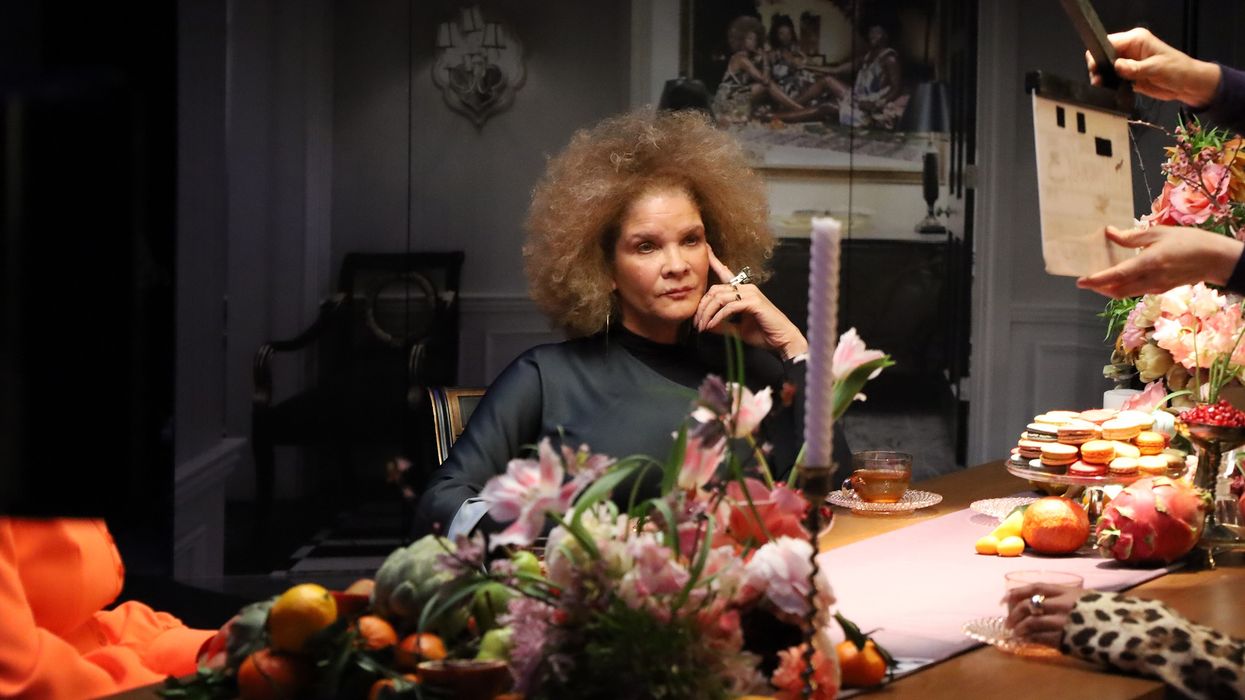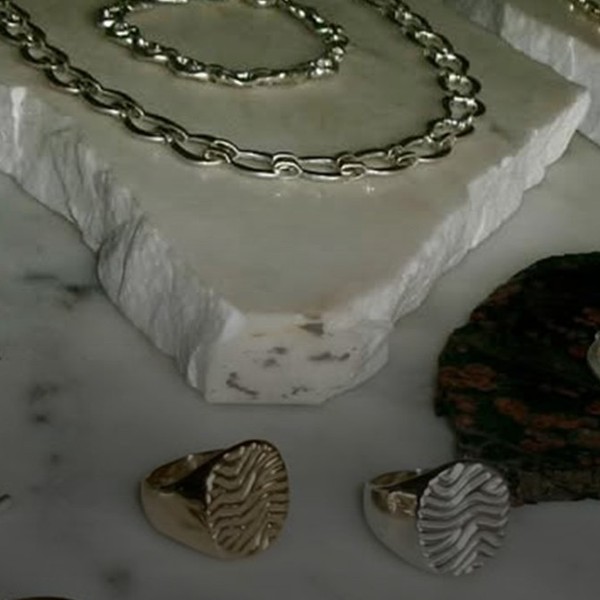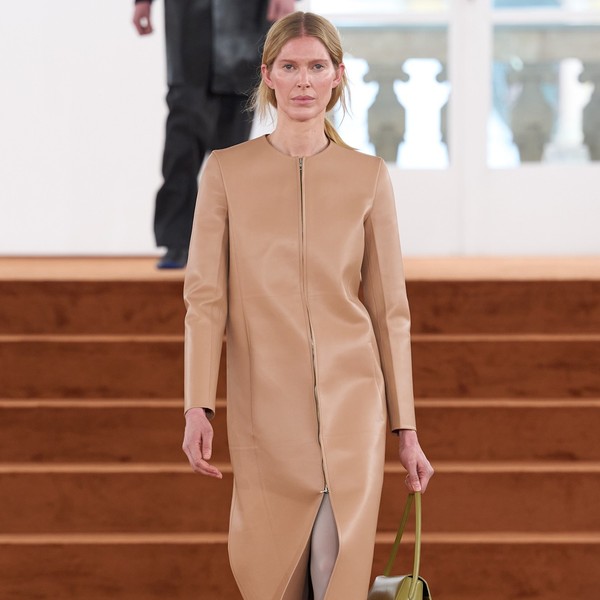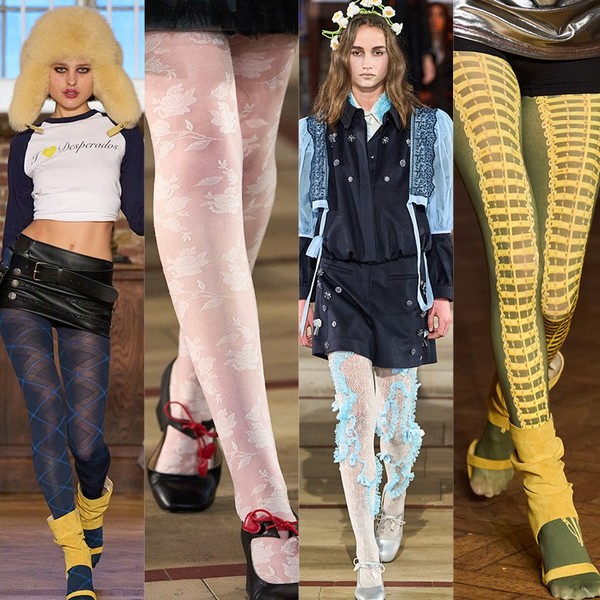Michaela Angela Davis on Using Hair to Craft a Story
"I’ve always been obsessed with hair because my hair was always such a flashpoint in my identity. Blonde and nappy don’t normally go together."

Welcome to On Beauty, a series where we take a deep-dive look into one person's relationship to beauty, how that relationship has transformed over the years, and how they experience being seen. This week, we're talking to "image activist" and the creator and executive producer of The Hair Tales on Hulu, Michaela Angela Davis. "Image activist" is a term Davis coined herself to put a name to the work she’s done championing Black women and challenging the status quo in mainstream culture. Ahead, Davis shares how growing up in a predominantly Black community impacted how she moved through the world, how hair serves as a flashpoint in one’s identity, and more.
"I grew up in Washington DC when it was still the Chocolate City. When I was there, there were actually some very progressive things happening in the Black community in terms of how and where children were educated. I went to the Duke Ellington School for the Arts [for high school] and it was transformational. It literally was a community of people who were young, gifted, and Black. We were very accustomed as young people to being around other Black geniuses; it wasn’t the add-on, it was the norm. I studied theater, and it was natural to read Lorraine Hansberry alongside Chekov. It was natural to know Scott Joplin and also Chopin. We had an expansive education. We were the majority there, and we were the shit. We were told that every day and it was poured into us.
"It was the first place I got to really see multiple identities of young Black people. The girls' bathroom in the morning was a changing room where some of the trans kids would come in and get dressed. We would do each other’s makeup and it was a school where you could just be. This was the late 70s or early 80s, so we didn’t have the language to know that they were trans; Rashad just came into the bathroom and got ready. I would not be who I am today if I didn’t go to that school. I wouldn’t have the courage or imagination."
"I finished high school relatively early and when I got to NYU it was not young, gifted, and Black. But I was in this incredibly exciting and amazing city, and very early on, I was working as a stylist’s assistant because my aunt was a stylist who worked with Richard Avedon. When I was younger, I used to pour over Vogue magazines because that same aunt was a fashion editor at Vogue and used to bring old issues to my house. I would look at the pages and tear off the heads of the models if I liked the clothes. I would remove the faces because they were always white and blonde; I just wanted to study the clothes. They weren’t my community and I was acutely aware of that aesthetic.
"What excited me was Soul Train. Every Saturday morning I studied the hair, makeup, and fashion; the soul train line was the runway, and I expected the fashion world to always be activated on all cylinders like that because that’s how we were at school, and that’s how you were at church. So when I got into a more white homogenous community, it was just bland. I was like, ‘Where are the braids and the afros and the extensions? It’s just highlights and bangs?’ It’s like a cake with no icing.
"I [started working at] Essence in the 90s. The first thing I did when I got there was look at their archives, which were extraordinary. People didn’t really know that Gordon Parks or Renee Cox were shooting for them. The impulse to illuminate Black beauty in a progressive way was always the intention I had where I worked."
"I’ve always been obsessed with hair because my hair was always such a flashpoint in my identity. Blonde and nappy don’t normally go together. No one in my immediate family or my neighborhood had the same hair that I did, and I stood out because of my hair. I was at CNN during the Obama years as a cultural critic and from the moment Trayvon Martin was murdered, I feel like I became a Black calamity and murder expert. All I did was talk about Black death and destruction. By the time we got to Charleston, I think I just had a break. It was traumatic. I went into my office the next day and went to my producer and told her, ‘I have to do something that’s about Black life, Black beauty, and Black resilience. I started a document on my desktop about how Black hair was an organizing principle in conversations about Black women’s identity, beauty, and humanity. I had one tagline: ‘There’s a story in every curl, coil, and kink.’
"Then from there, I developed everything very quickly and had the same methodology that Eve Ensler had in The Vagina Monologues. I thought I’d do a sort of anthropological experiment to talk about Black women through the lens of hair and use it as a tool to talk about identity in the same way that Eve Ensler used the monologues to talk about sexual violence. This was the first time I used any of my “famous friends” to ask for a favor. I asked Regina King if she would be one of my subjects and she said yes. Then Tasha Smith came in, and not only said yes, but also gave me a space to shoot in her theater in LA. Amanda Seales, Patrice Colors, and Kim Coles were also in the pilot and I gave that pilot to Refinery29 and they ran the series as mini-mobile docs. And from that little pilot, it grew. I did around 200 interviews [for the docu-series, The Hair Tales.] I brought a kitchen table to AfroPunk in Paris, Brooklyn, and Spelman College, and I'd do these little speed dates. It was this idea of bringing this table to a space and then having people come and tell me their stories. I was working out the actual mechanics of how to conduct an interview that would elicit a particular story and give you insight into that person’s personality. Because that’s really what a hair tale is.
"Someone says in the show that the tenants of culture are memory, innovation, language, and ritual. That’s how it’s organized in the academy. Hair has culture, and we just literally scratched the scalp. I feel like we've just opened up a way to talk about Black women through the lens of hair, but I’m deeply interested in other parts like the ritual and memory. Our hair locates us in a physical way that almost no other physical attribute does; my hair brings me community in a way that nothing else does. I think The Hair Tales is a multi-platform project where the docu-series was just one part of it."




